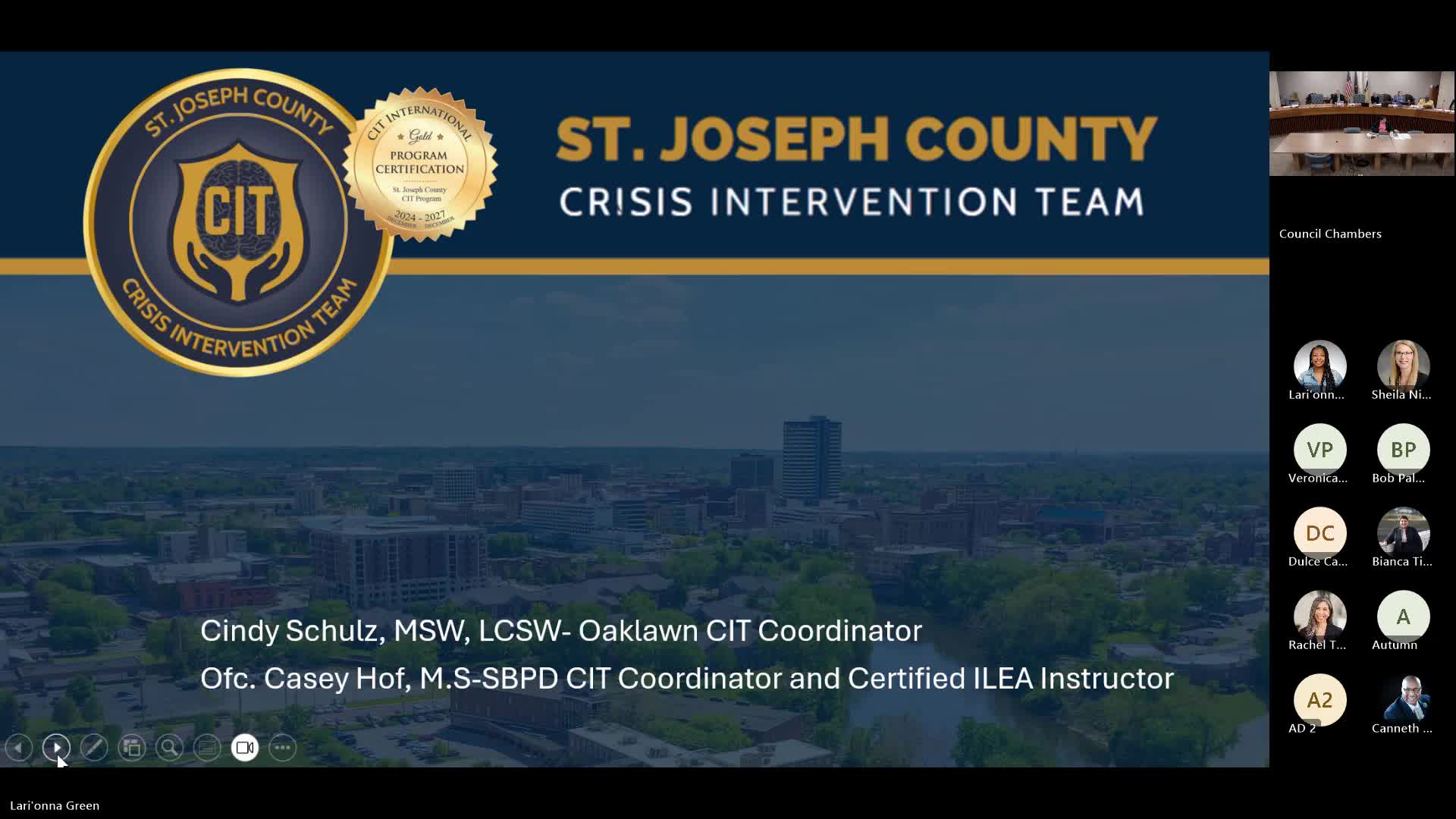St. Joseph County CIT program wins gold standard, expands training and referral tech
Get AI-powered insights, summaries, and transcripts
Subscribe
Summary
Health and Public Safety committee received an update on the Crisis Intervention Team (CIT): South Bend’s program received CIT International gold‑standard recognition, adopted a DOJ‑endorsed CRIT curriculum, reported training statistics, secured a three‑year sponsorship and is piloting an app to coordinate referrals among partners.
The Health and Public Safety Committee heard an update Oct. 11 on the Crisis Intervention Team (CIT) for St. Joseph County, including new training, certification and coordination work designed to improve responses to people in mental‑health and substance‑use crises.
Officer Casey Hoff of the South Bend Police Department and Cindy Schultz of Oaklawn presented the program’s structure, training syllabus and recent recognitions. Schultz told the committee to "reflect on a statistic ... 1 in 4 people struggle with a mental illness," framing the program’s public‑health focus.
Hoff and Schultz described CIT as a partnership model based on the Memphis model and said St. Joseph County received a gold‑standard designation from CIT International and a 2025 CIT Excellence Award from NAMI Indiana. The presenters noted the program has adopted a new 40‑hour curriculum endorsed by the U.S. Department of Justice (CRIT), the first in Indiana to do so.
The presenters shared training and coverage statistics for local law enforcement: roughly 21% of South Bend patrol officers — 35 of 167 — have completed CIT training; 17% of all sworn officers in South Bend have completed the certification (43 of 247). Hoff emphasized the program’s operational elements: a monthly steering committee, a training committee, coordination with dispatch and hospital partners, and an annual eight‑hour refresher course for certified officers.
Training includes a week‑long, scenario‑based certification that pairs classroom modules (legal policy, mental‑health presentations, substance‑use considerations) with live actor de‑escalation exercises and site visits to local behavioral‑health facilities. Hoff said the in‑class exercises include simulations of auditory hallucinations so officers can better understand and adapt to psychosis presentations.
Presenters also described recent and planned expansions: the program has begun dispatcher trainings for new hires; it received a three‑year sponsorship from FirstSource Bank to cover certification renewal and travel to CIT International conferences; and staff are building a public website with training announcements and community resources.
To improve on‑scene referrals and follow‑up, presenters described a pilot for an integrated referral platform (Gelada) that would let officers, mobile crisis teams and community partners share HIPAA‑compliant referral information and track follow‑up. Hoff said the app would reduce phone‑time and improve continuity of care by letting responders send an on‑scene referral and a request for mobile crisis follow‑up with a few taps.
Committee members asked about expanding training to Community Review Board members, additional civic participants and council members; presenters said the full 40‑hour certification is targeted to law enforcement and jail staff but that a tailored, shorter training for other audiences could be developed. Members also praised the focus on dispatch training, noting dispatch sets the initial tone for crisis responses.
The program’s leaders told the committee they will continue to recruit officers for full certification, offer annual refreshers, and pursue regional partnerships and technology integrations to better connect responders and behavioral‑health providers.
